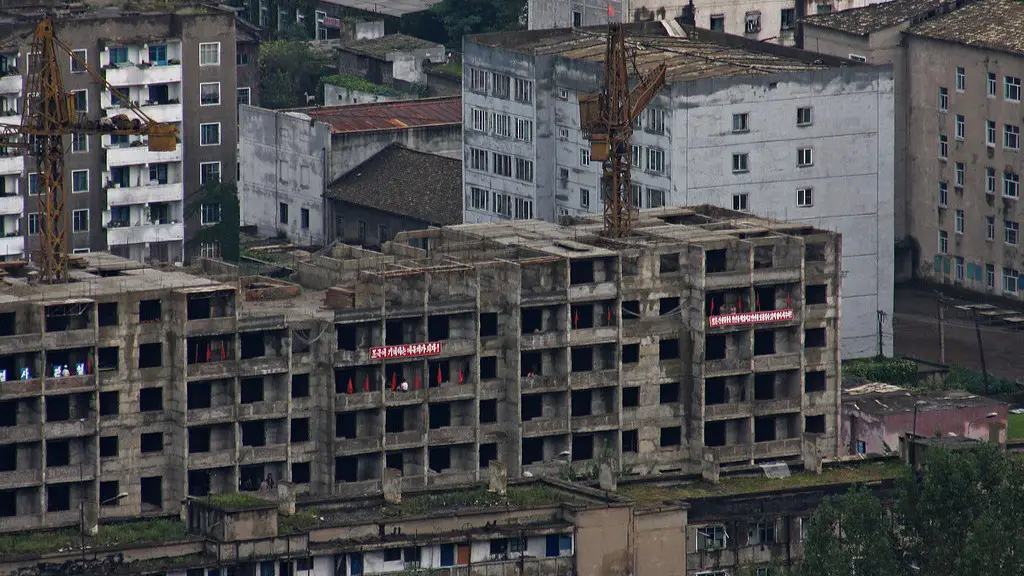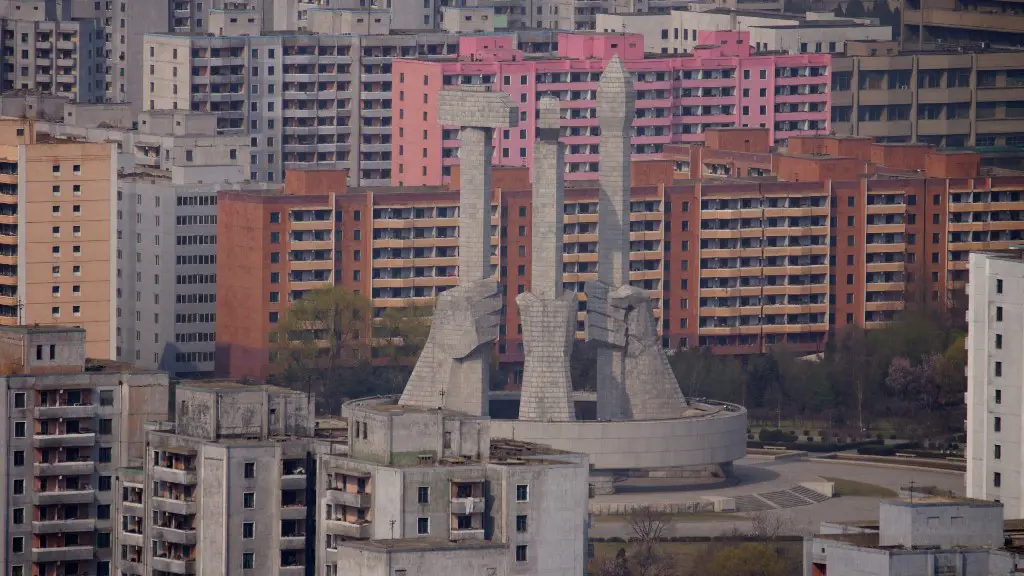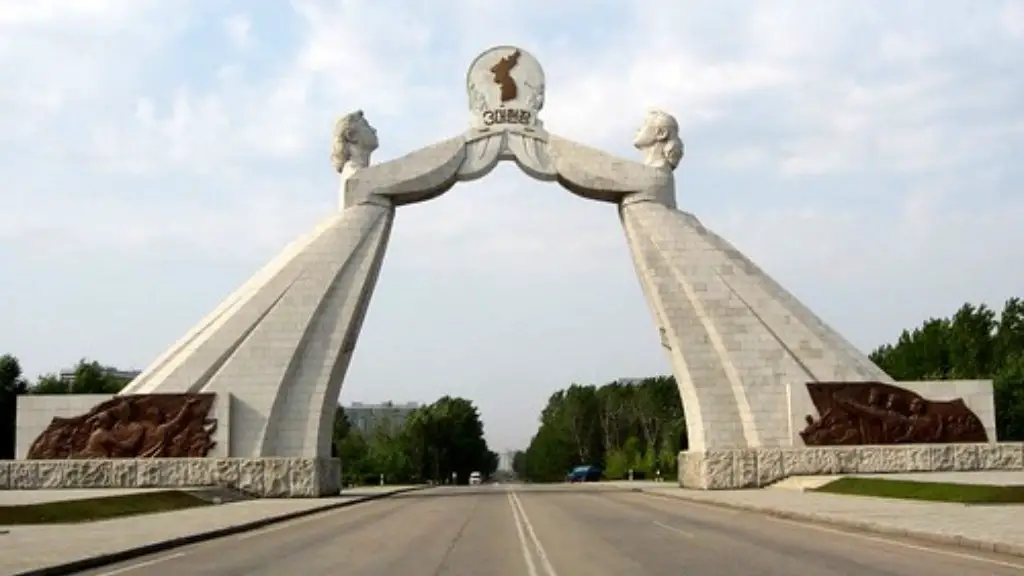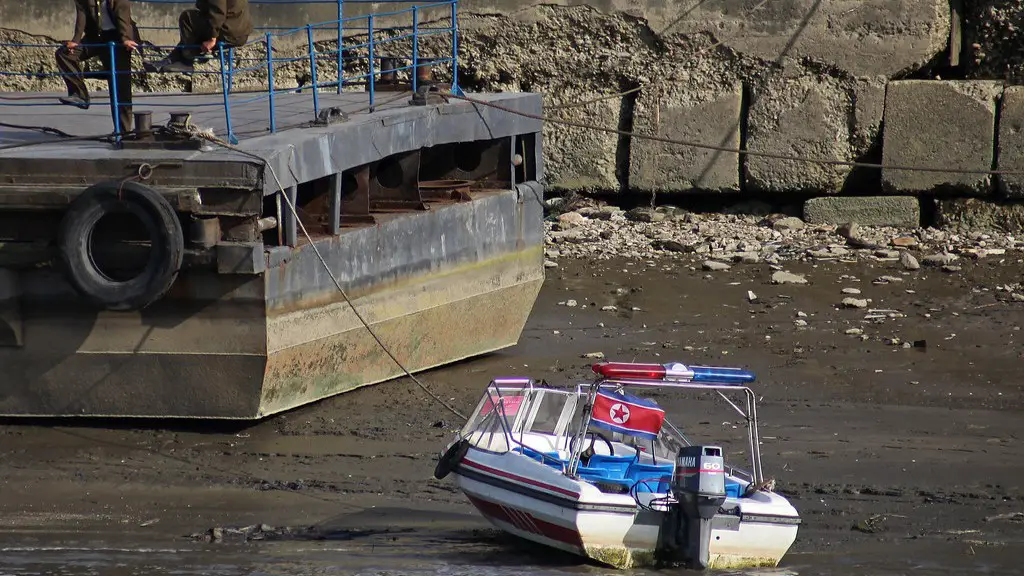What is the currency in North Korea?
The official currency in North Korea is the North Korean won (KPW). It is a closed system, which means that it can only be used for transactions within the country and is not exchanged for any other international currency. As of May 2020, the exchange rate of 1 US dollar to North Korean won was 8,176 KPW. Therefore, the value of the North Korean won is fairly low compared to other global currencies.
The North Korean won has been in circulation since 1947 when it was introduced as the official monetary unit for the nation. Over the years, North Korea has experienced devaluation and depreciation, which has resulted in a weakening of the currency’s purchasing power. However, North Korea has also seen surges in its currency’s value due to economic and political reforms implemented by the government.
There are several different denominations of the North Korean won in circulation. These denominations are the 1 won, 5 won, 10 won, 50 won, 100 won, 500 won, and 5,000 won notes. The 5,000 won note is the highest denomination of the North Korean won, and as of May 2020, it has been exchanged for approximately 0.61 US dollars. The 1 won and 5 won notes are rare and out of circulation.
In North Korea, all transactions are done in the domestic currency. Even though the US dollar is still accepted in many places and transactions, the North Korean won remains the primary means of payment and exchange. As a consequence of the country having a completely closed economy, US dollars and other international currencies are not accepted for official transactions.
Despite the North Korean currency being a closed system, North Koreans do not suffer from a lack of access to international currencies. This is because many North Korean citizens receive international aid from abroad, and also because a lot of North Koreans are able to generate an income through unofficial means, such as trade with China. As a result, some North Koreans have access to foreign currencies and are able to use them to purchase goods and services within the country.
The North Korean won is not the most valuable currency in the world, but it has been relatively stable over the years. The North Korean government has taken measures to try to stop the devaluation of the currency, and has also implemented policies that try to encourage economic growth. The effectiveness of these policies is uncertain, however, as the economy of North Korea remains largely closed off to the rest of the world.
Central Bank of North Korea
The North Korean won is issued and regulated by the central bank of North Korea, otherwise known as the Central Bank of North Korea (CBNK). The CBNK is the official monetary authority of the country, and it is responsible for setting the exchange rate and issuing banknotes and coins. The CBNK also controls the circulation of the North Korean won and has the power to set the interest rates on foreign currency deposits.
The CBNK has taken measures to make the currency more accessible to the public. For example, it has allowed foreign banks to open branches in North Korea, which has helped to make the exchange of the North Korean won for foreign currencies easier and more efficient. The CBNK has also established clearing houses to help resolve issues that may arise in the process of exchanging currencies.
In addition, the CBNK has implemented a number of domestic measures to help promote the North Korean economy. These measures include encouraging businesses to increase their capitalization and encouraging private enterprise to break away from the state-controlled economy. The CBNK has also taken steps to improve the banking system by consolidating small branches and reducing the amount of bureaucracy involved in banking transactions.
The Central Bank of North Korea plays an important role in stabilizing the North Korean won. By controlling the money supply, setting interest rates, and allowing foreign companies to invest in the country’s economy, the CBNK has been able to help reduce the effects of economic recessions and maintain a relatively steady value for the North Korean won.
International Transactions Using North Korean Won
The North Korean won is not widely accepted as a form of payment in international transactions. This is due to the country’s economic isolation and the restrictions imposed on it by the United Nations and other international organizations. As a result, it is very difficult for North Koreans to access foreign currencies and engage in international trade.
Despite this, some North Koreans have found ways to access international currencies. One way is through black market activities, such as the smuggling of counterfeit US dollars and euros. These activities, however, are highly illegal and can lead to hefty punishments if the perpetrators are caught.
Another way North Koreans can access foreign currency is through remittances from family and friends living abroad. North Koreans living in other countries can send money back to their family members in North Korea via informal channels, such as illegally shuttling money across the Chinese border. This money can then be exchanged for North Korean won.
Lastly, North Koreans have started to use cryptocurrency to access foreign currencies. Cryptocurrency is a digital asset that is not regulated by any government or central bank and can be used to buy goods and services online. North Koreans have been using cryptocurrencies like Bitcoin to bypass the sanctions imposed on it by the United Nations and access foreign currencies.
Measures Taken to Prevent Devaluation of North Korean Won
The North Korean government has taken a number of measures to prevent the devaluation of the North Korean won. For instance, it has taken steps to limit the amount of foreign currency that can be exchanged for the North Korean won. This has helped to limit the amount of foreign currency in circulation and has helped to support the value of the North Korean won.
The North Korean government has also been trying to promote economic growth and stability by opening up to foreign investment and increasing access to international markets. The goal of these measures is to create more jobs, open up new industries, and generate more wealth in the country. In addition, the North Korean government has also been trying to encourage private enterprise in the country by offering tax breaks and other incentives.
Furthermore, the North Korean government has taken steps to bolster the banking system. This has included issuing new banknotes with higher denominations and developing new methods of intermediary payments. In addition, the North Korean government has established specialized banking institutions to facilitate foreign investment.
Lastly, the government has also taken steps to reduce the amount of bureaucracy involved in banking transactions. This has included simplifying the banking process and making it easier for individuals to access and use their money.
Economic Impact of the North Korean Won
The North Korean won has had a significant impact on the economy of North Korea. It plays a key role in the country’s economic activities, such as trade, investment, and domestic consumption. The North Korean won has also been instrumental in establishing economic stability, helping to prevent the economy from going through too much fluctuation or devaluation.
The North Korean won has been a source of strength for the economy during difficult times, as it has helped to finance government expenditures such as infrastructure and military expenditures. It has also helped to support local businesses and individuals by providing a medium of exchange. Furthermore, the North Korean won has helped to encourage investment by allowing foreign companies to invest in the country’s economy without having to worry about the risk of a declining currency.
Overall, the North Korean won has been instrumental in helping North Korea maintain a stable economy. Despite its value being lower than many other global currencies, the North Korean won has been able to remain relatively stable, despite the difficult economic conditions in the country.
International Sanctions on North Korea
The international community has placed various economic and trade sanctions on North Korea in an effort to pressure the nation to abandon its nuclear weapons program. These sanctions have included bans on imports and exports, asset freezes, and travel restrictions. These sanctions have had a crippling effect on the North Korean economy, as they have cut off its access to international markets and foreign currency.
The sanctions have also resulted in a shortage of foreign currency and goods in the country. This has resulted in high prices and a decrease in living standards for many North Koreans. It has also resulted in a downturn in the North Korean economy, as businesses have been unable to access necessary goods, services, and investments.
Despite the crippling effects of the sanctions, North Korea has attempted to adapt and survive. The North Korean government has introduced various measures to stimulate the economy, such as encouraging foreign investment and loosening restrictions on private enterprise. It has also allowed for a limited amount of foreign currency to be exchanged for North Korean won.
The international sanctions on North Korea have had a substantial impact on the North Korean economy and the value of the North Korean won. The sanctions have resulted in reduced access to foreign currencies and goods, as well as a decrease in economic growth. The effects of the sanctions are likely to remain for some time, though the current administration has indicated that it is willing to negotiate with the international community in order to lift the sanctions and improve the economic situation in the country.





